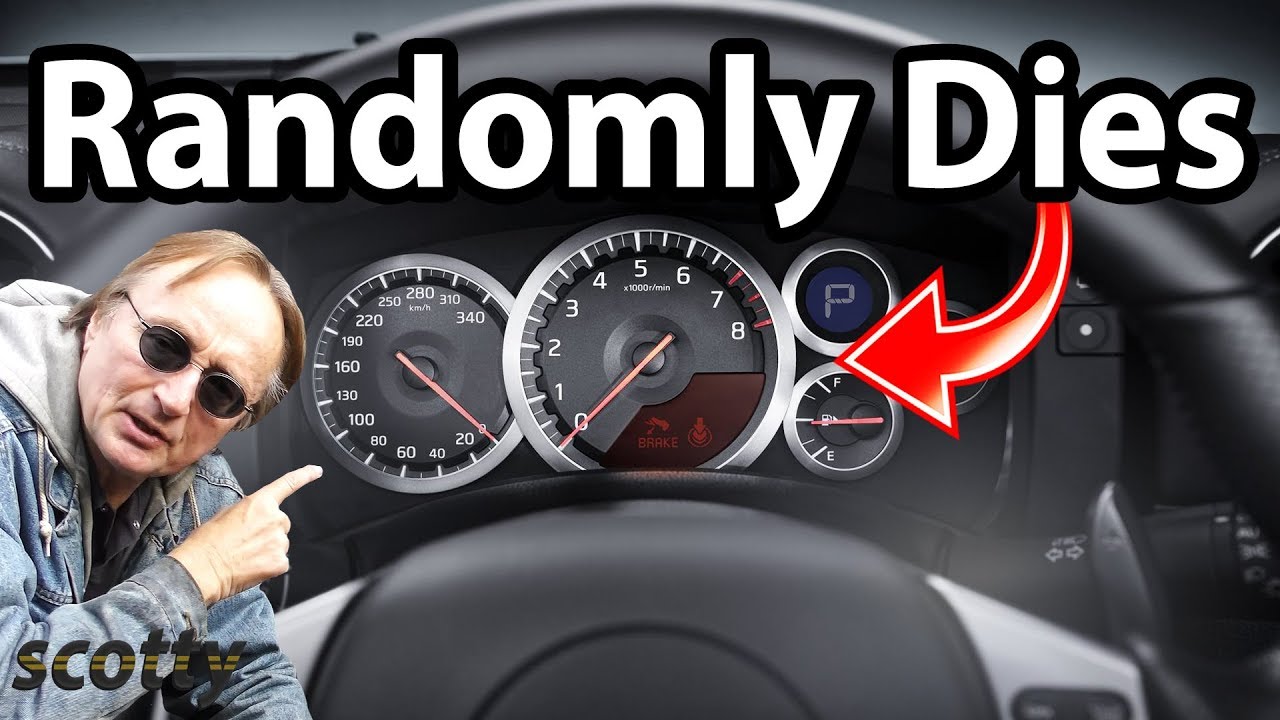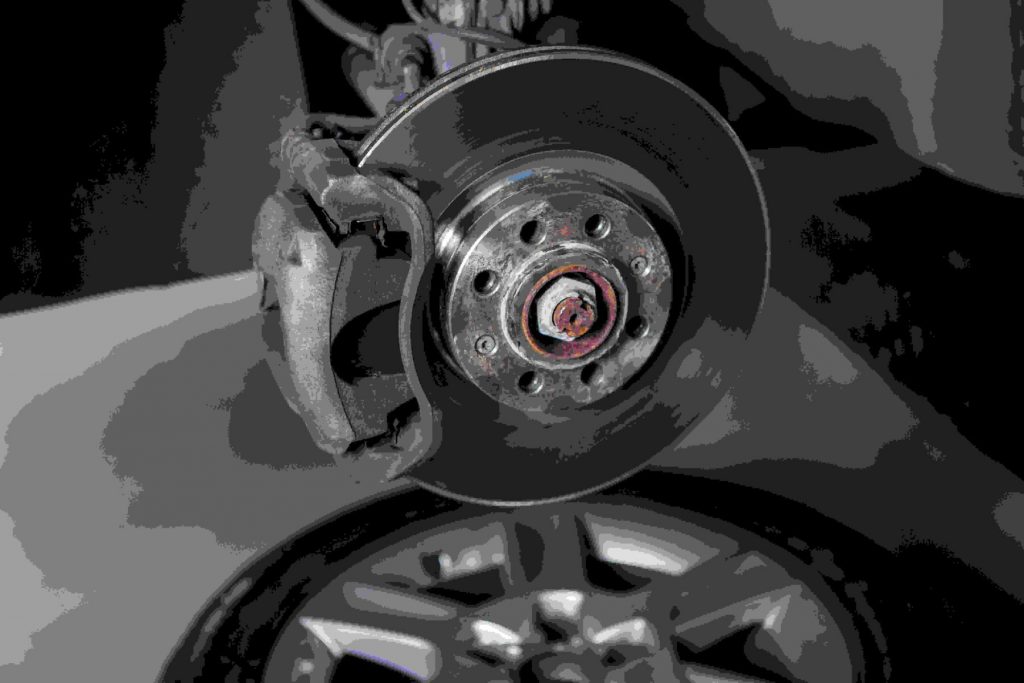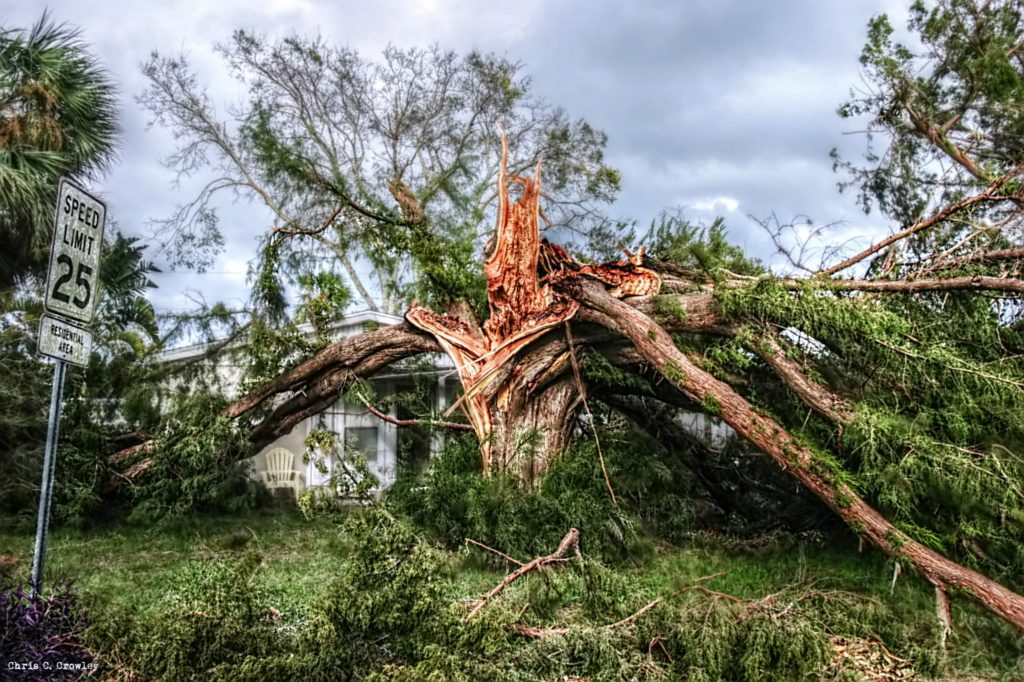It’s every driver’s nightmare – you’re cruising along the roads of Sharjah when suddenly your car’s engine dies without warning. We understand how alarming and dangerous this situation can be, and at Burj Malabar Auto Maintenance we often hear from panicked motorists describing how their car shut off mid-drive. In this article, we will walk you through why this can happen and how to troubleshoot it safely. By understanding the common causes and knowing what steps to take, you can handle an unexpected stall calmly and get back on the road as soon as possible.
Common Reasons Your Car Might Shut Off While Driving
When a car turns off while driving, there isn’t a one-size-fits-all answer for why it happened. However, most cases boil down to a few typical culprits. Here are the most common reasons a car might stall or die during a drive:
- Fuel Supply Problems: Running out of fuel is an often overlooked cause of sudden engine shut-off. A broken or inaccurate fuel gauge might mislead you into thinking you have gas when the tank is actually empty. Aside from an empty tank, other fuel system issues like a faulty fuel pump, clogged fuel filter, or bad fuel pump relay can starve the engine of fuel, causing it to stall. For example, a weak pump or blocked filter will prevent enough gasoline from reaching the engine, mimicking the symptoms of running out of gas. Always double-check that you have sufficient fuel, especially before long drives, and be mindful that fuel system components should be kept in good condition through regular maintenance.
- Battery or Charging System Failure: Your car’s battery and alternator work together to power the vehicle’s electrical components and engine management systems. If either fails, the engine can lose spark or fuel control and shut off. Something as simple as a loose battery cable can cut off the electrical flow and stall the engine. Likewise, a dying alternator may stop charging the battery, leading to a complete loss of power while driving. One telltale sign of charging issues is the battery warning light on your dashboard coming on, or accessories (lights, radio, AC) fading out just before the engine dies. In Sharjah’s extreme heat, these problems are even more common – high temperatures can weaken a battery’s internal components and even evaporate battery fluid faster. If your car shuts off and the battery is dead, it’s a strong indicator the alternator failed to keep it charged.
- Ignition System or Sensor Issues: The ignition system provides the spark that keeps your engine running, so any widespread ignition failure can cause an abrupt shutdown. A common example is a faulty crankshaft position sensor – this sensor tells the engine’s computer the position of internal parts, and if it fails, the computer might cut off fuel and spark at once. Similarly, a bad ignition switch (the electrical part that your key or start button controls) can intermittently cut power to the ignition and fuel systems, instantly stopping the engine. These problems often strike without much warning; you might notice the engine stuttering or the check engine light illuminating in some cases, but not always. If all your electrical accessories still work (lights, etc.) yet the car died, an ignition/sensor issue could be the cause.
- Engine Overheating: Overheating is another potential cause of a car shutting off suddenly. Modern cars may enter a fail-safe mode and shut down to prevent damage if the engine gets too hot. This could happen if your cooling system fails – for example, due to a low coolant level, a broken water pump, or a stuck thermostat. In Sharjah’s hot climate, cooling systems are under heavy strain; if your temperature gauge was maxed out or you saw steam from under the hood before the car died, overheating likely triggered the shutdown. We have seen many cases where a simple coolant leak or faulty radiator fan led to an engine stall as the vehicle’s computer tried to save the engine from extreme heat. Always keep an eye on your temperature gauge. If overheating causes a stall, the engine may not restart until it cools down (and severe overheating can even cause engine damage).
- Internal Engine Failure: This is the worst-case scenario but less common. A major internal failure – like a timing belt snapping, a seized engine due to oil starvation, or other catastrophic engine damage – will definitely make the car shut off and not restart. Often, there are loud warning sounds in this scenario (such as knocking or rattling noises right before the stall). If you experience a sudden bang or mechanical noise and the engine dies, it could be an internal failure. For instance, if a timing belt breaks, the engine’s moving parts fall out of sync and the engine stops immediately. Similarly, if the engine has been running with no oil or extremely low oil, components can seize up and stall the car. These situations usually require a major repair, and attempting to restart the engine could cause further damage if something has broken internally.
To summarize these causes and how you might recognize them, we’ve compiled a quick comparison:
| Possible Cause | Signs & What Happens | What You Should Do |
|---|---|---|
| Out of Fuel | Engine sputters and loses power gradually; fuel gauge on “E” (unless gauge is faulty). | Safely pull over and refuel. If the gauge is faulty, regularly track your mileage to avoid running dry. |
| Battery/Alternator Failure | Dash battery light comes on; electronic accessories dim; engine dies as battery power is lost. | Pull over. If the car won’t restart and battery is dead, you may need a jump-start. Have the alternator and battery checked/replaced before driving far. |
| Ignition/Sensor Issue | Engine abruptly cuts out (often like the key turned off); possibly a check-engine light. Electrical accessories still work. | Try shifting into neutral and restarting once. If it starts but dies again, call for a mechanic – a sensor (e.g. crankshaft sensor) or ignition part likely needs replacement. |
| Engine Overheating | Temperature gauge is in the red; you might see steam or smell hot coolant; engine may stumble before shutting off. | Turn off the engine ASAP and let it cool. Do not immediately open the radiator cap (risk of burns). After cooling, check coolant level and look for leaks. Refill coolant/water if available. Do not drive until the cooling system is fixed. |
| Major Engine Failure | Loud metallic bang/knock before stalling; engine won’t restart at all; possibly oil warning light on or oil puddle under car. | Do not attempt to restart the car. Call for towing. Major repairs will be needed, so have a professional inspect the engine. |
How to Troubleshoot a Car That Shuts Off on the Road
Facing an engine stall while driving can be scary, but it’s important to stay calm and take the proper steps. Here’s how to troubleshoot and handle the situation safely:
- Stay Calm and Steer to Safety: At the first sign that your engine has died (you’ll notice loss of power and the engine sound stopping), keep a firm grip on the wheel. Your power steering and power brakes will become less effective, so steering might feel heavy and you’ll need to press the brake pedal harder. We advise gently guiding your car toward the right shoulder or a safe spot out of traffic. Use your momentum to coast off the road. As you pull over, put on your hazard lights to alert other drivers that you’re having an issue.
- Turn Off the Ignition (if it’s still on) and Assess the Situation: Once stopped, shift into park (or neutral for a manual) and set the parking brake. Turn the ignition key off if the engine has stalled but dash lights are still on. Take a moment to breathe. Safety is your first priority. If you have a reflective warning triangle, place it a few meters behind your car to warn oncoming traffic, especially on a busy Sharjah highway or at night.
- Do a Quick Visual Check Under the Hood: If it’s safe and you’re comfortable doing so, pop the hood to take a look (and to help the engine cool down if it overheated). Look for any obvious signs of trouble: extreme heat or steam (sign of overheating), the smell of fuel (possible leak or flooding), or electrical burning smells. Also, check the oil level using the dipstick if you know how. Important: if the engine was making strange rattling/knocking noises before it died or if you find no oil on the dipstick, do not attempt to restart the car. A lack of oil or scary noises could mean internal damage, and trying to run the engine might make it worse.
- Check Your Dashboard for Clues: Your car’s instrument panel can provide immediate hints about what went wrong. Look at the fuel gauge – is it possible you ran out of fuel? Look at the temperature gauge or warning light – is the engine overheated? Also notice if the battery light or check engine light came on. For example, a battery light indicates a likely charging system failure (bad alternator or battery), whereas an illuminated check-engine light might point to a sensor or ignition issue. If you identify a likely cause (like an empty tank or overheating), you’ve narrowed down the problem significantly.
- Try to Restart the Engine (if you didn’t detect serious problems): After a minute or two, attempt a restart only if everything seemed normal (no severe overheating, decent oil level, etc.). Sometimes the engine will restart easily, especially if the stall was due to something like a sensor glitch or a momentary fuel hiccup. If the car restarts and runs, pay attention to any warning lights or unusual behavior. In some cases, the car might run long enough for you to drive to a service center or at least a safer location. However, if the engine refuses to crank or starts and immediately stalls again, do not crank it repeatedly – you’ll need to move to the next step.
- Call for Professional Help: If your car won’t restart, or you’re unsure what caused the stall, it’s time to seek help. Contact a roadside assistance service or a trusted mechanic. We recommend having the car towed to a garage for thorough diagnostics if the cause isn’t obvious or if the vehicle isn’t safe to drive. Describe to the mechanic what happened and any clues (e.g., “the car died and the battery light came on” or “there was steam and a high temp gauge”). This can help them pinpoint the issue faster. Remember, do not continue driving a car that randomly dies – it’s not only unsafe but could also lead to further damage. It’s better to get the problem identified and fixed before you hit the road again.
Throughout this troubleshooting process, stay safe. If you are stopped in a precarious location (like middle of traffic) and cannot coast off the road, stay in the car with your seatbelt on, turn on hazard lights, and call emergency services for help. In Sharjah and the UAE, traffic patrols can assist in securing the area or towing if needed. Your safety and the safety of others on the road is the top concern.
Keeping Your Car from Stalling: Maintenance Tips
While some causes of a sudden shut-off are hard to predict, many can be prevented with good maintenance and attentive care. As a car owner, even if you’re not mechanically inclined, a few simple habits can go a long way toward avoiding breakdowns:
- Regular Service Checks: Staying up-to-date with your car’s maintenance schedule is crucial. Routine inspections and servicing (oil changes, coolant flushes, replacing worn belts and spark plugs, etc.) help catch problems early. For example, a mechanic can test your battery and alternator during service to ensure your charging system is healthy. They can also replace fuel filters and check fuel pumps as recommended by your vehicle’s manufacturer. By keeping up with these inspections, you significantly reduce the risk of unexpected problems on the road.
- Monitor Fluid Levels and Temperature: Make it a habit to check your engine oil and coolant levels periodically (such as every few fuel fill-ups or before a long trip). Engines that run low on oil or coolant are far more likely to overheat or seize. In Sharjah’s heat, coolant can evaporate or leak more quickly, so top-ups might be needed between scheduled services. Also keep an eye on your dash gauges while driving – if you ever see the temperature creeping into the red, safely pull over before it gets worse. Address cooling system issues (like a leaking radiator or weak fan) promptly, rather than “hope for the best,” because running hot can lead to major engine damage.
- Take Care of the Battery and Electrical System: Given the strain of extreme temperatures, batteries in the UAE often have shorter lifespans. Proactively replacing your car’s battery every 2-3 years (or as soon as it shows weakness) can save you from a dead battery on the highway. Keep the battery terminals clean and tight – remember, a loose or corroded battery connection can shut your car off unexpectedly. If you notice dimming headlights or accessories, get the alternator tested. It’s wise to have a battery/charging system test done before summer starts, as heat is tough on these components.
- Fuel Habits: Don’t let your fuel tank run extremely low, especially if you suspect your fuel gauge might be inaccurate. Sediments at the bottom of the tank can clog filters or pumps when fuel is nearly empty. We recommend keeping at least a quarter tank of fuel at all times. If you ever experience an odd surging or sputtering before a stall, it could be fuel starvation – have the fuel system checked for clogged filters or a weak pump. Using good quality fuel and occasionally adding a fuel system cleaner (as per your mechanic’s advice) can also help keep the fuel delivery system clear.
- Pay Attention to Warning Signs: Cars rarely fail without any warning. Often there are small symptoms leading up to a big problem. If you’ve had occasional engine sputtering, jerking, or stalling at idle, don’t ignore it. Similarly, a check-engine light appearing, or difficulty starting the car in the mornings, are signs to get the car checked out. It’s much better to fix a minor issue (like a bad sensor or spark plug) than to deal with a car that quits on a highway because that minor issue was left unresolved. Staying alert to how your car feels and sounds can alert you to get repairs before a breakdown occurs.
By following these preventive tips, we aim to ensure you never have to experience the stress of an engine dying on you mid-drive. Regular care not only prevents stalls but also extends the life of your vehicle, saving you money and hassle in the long run.
Troubleshoot with Confidence and Stay Safe
Having your car shut off while driving is scary, but being prepared makes all the difference. Understanding the typical reasons for this problem – from empty fuel tanks and battery failures to overheating engines – helps you respond calmly and effectively if it ever happens to you. Always remember the first steps: stay calm, steer to safety, and assess the situation. Often, the cause is something you can identify (like low fuel or an overheating warning) and address accordingly. If not, we encourage you to call a professional rather than risk driving a dangerously unreliable car.
At Burj Malabar Auto Maintenance, we have seen how a little knowledge empowers drivers to handle emergencies better. Our goal is to keep Sharjah drivers safe and confident on the road. We hope these troubleshooting tips have demystified the problem of a car shutting off while driving. With proper maintenance and prompt attention to any warning signs, you can greatly minimize the chances of this ever happening. Safe driving, and remember – we’re here to help if you ever need guidance with your vehicle!



